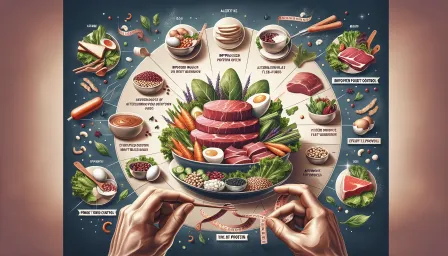The Ultimate Guide to Nutrient Timing and Energy Levels: Boost Your Daily Performance

Discover how nutrient timing can enhance your energy levels and daily performance. Learn the best strategies and tips for maximizing your nutrition.
Optimal nutrient timing is essential for enhancing energy levels and daily performance. From athletes to busy professionals, understanding when to eat and what to consume can make a significant difference in how we feel and perform throughout the day. This guide offers a comprehensive insight into nutrient timing and its impact on energy levels, empowering you to achieve your best self every day.
Understanding Nutrient Timing
Nutrient timing refers to the strategic consumption of nutrients—primarily proteins, carbohydrates, and fats—at specific times to maximize health benefits and improve physical performance. It’s not just about what you eat, but also when you eat it. Proper nutrient timing can aid in muscle recovery, energy production, and even weight management.
The Science Behind Nutrient Timing
Nutrient timing leverages the body's natural rhythms and metabolic processes. For instance, consuming proteins and carbohydrates shortly after a workout can help replenish glycogen stores and facilitate muscle repair, leading to enhanced recovery and performance in future workouts.
Benefits of Nutrient Timing
- Enhanced Energy Levels: Proper nutrient timing ensures that your body receives the right fuel at the right time, leading to sustained energy throughout the day.
- Improved Performance: Athletes and active individuals can benefit from timed nutrient intake to optimize workout results and recovery.
- Better Recovery: Consuming nutrients post-exercise can expedite muscle repair and reduce soreness.
- Weight Management: Strategic eating can help regulate appetite and prevent overeating.
Key Strategies for Optimal Nutrient Timing
Pre-Workout Nutrition
Eating the right foods before a workout can significantly impact your performance. Aim to consume a combination of carbohydrates and proteins about 30-60 minutes before exercise. Carbohydrates provide a quick source of energy, while proteins support muscle function.
Pre-Workout Meal Ideas:
- Greek yogurt with berries
- Banana with almond butter
- Oatmeal topped with fruit and nuts
Post-Workout Nutrition
Post-workout nutrition is crucial for recovery. Focusing on proteins and carbohydrates immediately after exercise helps replenish energy stores and repair muscle tissue. Aim to consume a post-workout meal or snack within 30 minutes to an hour after your workout.
Post-Workout Meal Ideas:
- Grilled chicken with quinoa and vegetables
- Protein smoothie with spinach, banana, and protein powder
- Turkey and avocado wrap
Daily Nutrient Timing for Optimal Energy Levels
Aside from pre- and post-workout nutrition, maintaining a balanced nutrient intake throughout the day is essential for consistent energy levels. Here are some key tips:
- Breakfast: Start your day with a balanced meal containing proteins, healthy fats, and carbohydrates. This can help stabilize blood sugar levels and provide sustained energy. Example: scrambled eggs with avocado and whole-grain toast.
- Mid-Morning Snack: Keep your energy levels steady with a healthy snack. Example: an apple with a handful of nuts.
- Lunch: A balanced lunch helps prevent the afternoon slump. Include proteins, whole grains, and plenty of vegetables. Example: grilled salmon with brown rice and a side salad.
- Afternoon Snack: A small snack can keep you energized through the late afternoon. Example: carrot sticks with hummus.
- Dinner: Choose a lighter but nutrient-dense meal to avoid feeling sluggish. Example: a quinoa and vegetable stir-fry with lean protein.
Special Considerations
Individual Differences
It's essential to remember that individual needs and responses to nutrient timing can vary. Factors such as age, sex, activity level, and metabolic rate play a role in determining the most effective nutrient timing strategy. Experimenting and adjusting based on personal experience is crucial.
Hydration
Proper hydration is a critical component of nutrient timing. Dehydration can significantly impair performance and energy levels. Make sure to drink plenty of water throughout the day and consider hydrating beverages before and after workouts.
Common Misconceptions
Skipping Meals
Skipping meals, especially breakfast, is often considered detrimental to energy levels and overall performance. A consistent meal schedule helps maintain stable blood sugar levels and ensures a steady supply of nutrients throughout the day.
Indulgence and Nutrient Timing
While nutrient timing is important, indulging occasionally won't derail your overall progress. Balance and moderation are key. Enjoying your favorite treats in moderation can be a part of a healthy diet.
Conclusion
Mastering nutrient timing can be a game-changer in optimizing your energy levels and daily performance. By strategically planning your meals and snacks, you can ensure that your body receives the right fuel at the right times. Remember that individual needs vary, so listen to your body and adjust your nutrient timing strategy accordingly. With the right approach, you can boost your energy levels, enhance your performance, and feel your best every day.



























